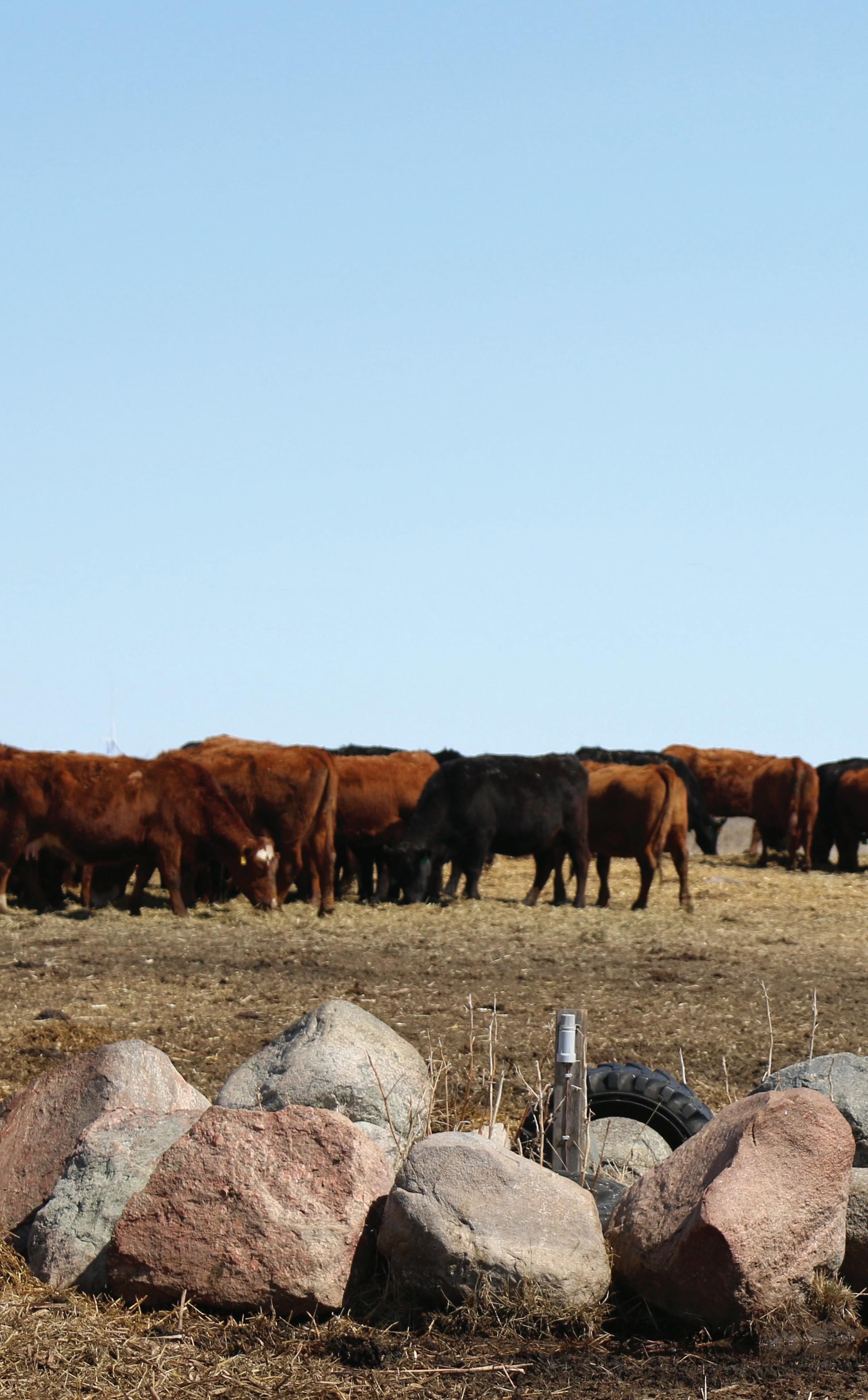
2 minute read
Livestock bills a success for NDFU
The 68th Legislative Assembly is closing in on the end of what has been a busy session for NDFU. House Bill No. 1371, which gives animal feeding operations more flexibility under the state’s corporate farming law, has garnered most of the public attention. While NDFU devoted significant time and energy to amending that bill, we have also worked steadily to advance a package of bills that promote livestock and value-added development. Those bills empower local communities to drive their own development strategies and provide new incentives for value-added projects.
Locally Led Development
At NDFU’s most recent annual convention, delegates passed a special order of business outlining the organization’s priorities for the 2023 session. That special order called for programs to “promote local acceptance … for North Dakota livestock producers.” With the establishment of a Regional Livestock Planning Grants program and a Livestock Friendly County designation, NDFU has logged two key victories in promoting locally led development. House Bill No. 1437 establishes the Regional Livestock Planning Grants program. The voluntary, opt-in program provides funding to counties and regional development councils to conduct rural development site analyses. The site analyses help counties identify suitable locations for livestock and other value-added development. The program also provides assistance to townships that want to update their zoning ordinances. In short, HB 1437 provides the foundational information and resources counties and townships need to identify economic development opportunities.

Senate Bill No. 2373 builds on HB 1437 with the establishment of a Livestock Friendly County (LFC) designation. The LFC designation provides a framework for the development of a local livestock development strategy. Counties are only eligible after the county commission has adopted a resolution expressing its interest in being named an LFC. The bill also lays out criteria for the designation, including collaboration with all political subdivisions, a submitted development plan, and the completion of a rural development site analysis.
SUPPORTING VALUE-ADDED PROJECTS
For years, NDFU has recognized the lack of processing capacity as a key barrier to the success of the state’s livestock producers. During the 2021 legislative session, the organization championed the establishment of the Agriculture Diversification and Development (ADD) fund. This session, NDFU supported House Bill No. 1276, which grows the ADD fund and establishes a new Agriculture Infrastructure Grant program.

The ADD fund provides grants and interest buydowns, and is one of North Dakota’s unique tools for developing value-added agriculture in our state. In its first 18 months of operation, the program supported a wide variety of valueadded projects in all corners of the state. ADD fund recipients included meat processors, ethanol facilities, craft maltsters, pea flour processors and more. The program’s first $10 million appropriation will almost certainly be spent before the end of the biennium. HB 1276 builds on that early success by appropriating $25 million, at least $15 million of which can be used for direct support to projects.
The other $10 million in HB 1276 can be used for the Agriculture Infrastructure Grant program. Agriculture Infrastructure Grants will be awarded to political subdivisions for road and bridge improvements necessary to accommodate new or expanded value-added projects. Grants are also available to help with other “last mile” infrastructure needs, such as natural gas, three-phase power, and water and sewer connections. Addressing those infrastructure needs will benefit new projects and political subdivisions, and boost local support for economic development.
Conclusion
By the time you read this, each of the bills summarized above will be signed into law, but our work is far from over. In the final weeks of session, NDFU is focused on advancing our budget priorities. Chief among those is funding for a new Ag Field Lab Facility at the Agriculture Experiment Station and addressing the backlog of rural road and bridge needs. It will be a busy conclusion to a busy session.
— Matt Perdue, Government Relations Director










